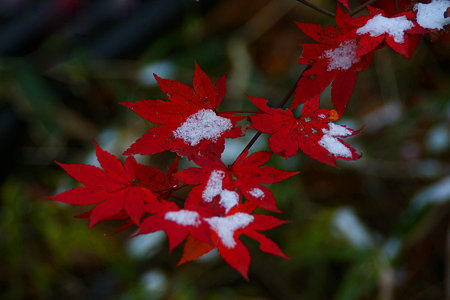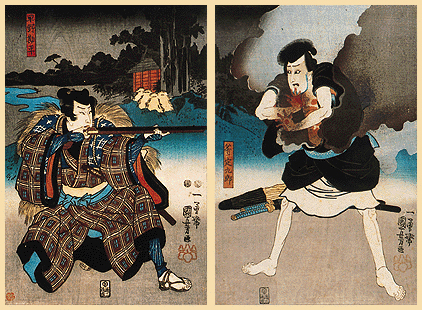
I have heard that a few days ago, the first snow of the season has fallen in the northern part of Japan.
Will it be winter soon jumping autumn?
Since Mr. Shimura was summoned to Heaven, three seasons, Spring of "Sakura No Kisetsu" (Season of Cherry Blossoms), Summer of "Kagerou" (The Shimmer of Heat), Autumn of "Akakiiro No Kinmokusei" (Reddish Yellow Osmanthus) have passed.
I am so anxious that Winter comes earlier than usual years, and then Christmas Eve will come so quickly this year. It is almost a year since Mr. Shimura passed away on Christmas Eve...
A clock ticks away the time regardless our feeling.
No matter how many years passed by, we miss him always and our heart will never be healed.
We just have to keep going tricking our mind to lead our everyday life...
Let's take a look at marriage in Japan.
Due to culture of Samurai, emphasis was placed on the relationship between two families.
As a result, it ignored the feelings of the couple themselves because parents chose a partner for a son/a daughter. This leads the growing desire for relationships based on personal feelings, and numerous works of fiction dealt with forbidden love. Some were presented as Literature, Kabuki and Bunraku plays, and received accolades from the masses.
Please find the list of romanticized forbidden love found in Kabuki play and Literature.
These are only some.

"Kamiyui Shinza" - Kabuki play
A widow is in charge of a timber dealer at Kyo-Bashi in Edo.
The business does not go well, and the widow hatches a plot of taking a rich husband for her step-daughter, Okuma.
Okuma and Tadashichi, a worker in her shop, are in love with each other. A hair dresser, who is familiar with the two, recommends them to elope together, but in fact, he was planning to kidnap Okuma to demand a ransom.
"Nogiku No Haka" (The Tomb of Wild Chrysanthemum An English translation available) - written by Sachio Ito
Tamiko and Masao are cousins, and are brought up like a brother and a sister. They start falling in love each other, but the adults around them thwart their love.
"Nihon No Kokoro" (Heart of Japan) - written by Patric Lafcadio Hearn
Pure love between Taro and Oyoshi were thwarted by Oyoshi's step-mother. How did the two achieve their ultimate form of love...?
Tragic love is typical of oriental culture, and it is specialty of Koren TV soap operas.

In modern Japan, we can marry on our free will, but I personally feel it is difficult to maintain marriage if two individuals' opinion are too respected.
We have to be careful not to make a decision of getting married and divorcing driven by a fit of emotion.
The marriage life goes up and down - we sometimes have an argument and the relationship between two can turn sour, too.
Family and relatives around us often work as motive power to stop giving way to a silly action from our impulse. (It can be vice versa, too, though sometimes...)
After all, I felt that keeping a good balance between personal feelings and family bond is crucial in marriage for Japanese.
Over last three days, we had a look at "wedding song" by Fujifabric.
Was it clear that a concept of this song, putting an emphasis on bride and groom, is quite modern?
Marrying for love is an important part, but a great influence of traditional family bond still remains in modern Japan.
"Wedding song" is filled with atmosphere of newly-married couple, and it is a heart-warming song.
Mr. Shimura's suggestion that a smile is the key to a happy family is understandable, too.
Wish you a ever-lasting happy life, Ms. Omori and Shimura-kun's younger sister!
Please listen to the 6th song, "wedding song" in the 6th album, "MUSIC".

No comments:
Post a Comment